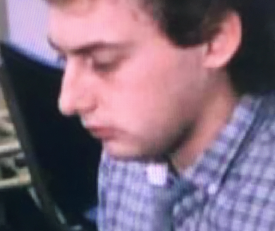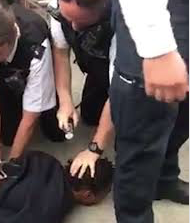- ‘Lies, damned lies etc…’ - 13th February 2026
- Missing in action - 12th February 2026
- Travel news again - 11th February 2026

On The Eye our Editor Phil Parry has described how he was helped to break into the South Wales Echo office car when he was a cub reporter, recalled his early career as a journalist, the importance of experience in the job, making clear that ‘calls’ to emergency services and court cases are central to any media operation, as well as the vital role of the accurate quotation.
He has also explored how poorly paid most journalism is when trainee reporters had to live in squalid flats, the importance of expenses, and about some of those he has interviewed as well as one of his most important stories on the now-defunct 53 year-old BBC Wales TV Current Affairs series, Week In Week Out (WIWO), which won an award even after it was axed, long after his career really took off.

Mr Parry has also explained the importance of actually speaking to people, the virtue of speed as well as accuracy, and here talks about why the police don’t always get it right.
In all my dealings over many years as a journalist, with the police, it has often struck me they aren’t, actually, terribly bright!
Unless investigating officers had CCTV or a confession they were often stumped when it came to solving a high-profile crime.
On one occasion for the BBC Wales TV Current Affairs programme I presented Week In, Week Out (WIWO), a crucial piece of prosecution evidence in a miscarriage of justice case was a so-called ‘confession’ secured by a senior police officer.

WIWO has unfortunately been closed down after 53 years, but in the past we had countless dealings with the police (in a professional capacity of course!).
This officer had supposedly crouched down between the cells of two suspects in a murder case and ‘heard’ them effectively admitting to the crime.
Except the ‘confession’ he scribbled down was in such excruciating police-speak it was easy for us to discredit.


It wasn’t quite ‘proceeding in a northerly direction…’ but you get the idea!
The officer was presented with a large plastic ear by colleagues at his leaving do.
On a BBC TV Panorama I fronted, the leading investigative officer was meant to be unassuming in the community, yet he drove around in a fast car with personalised number plates.

On the same Panorama programme a serving police officer we fingered in a murder case locked and bolted the door after us when we went to see him, using a large series of bolts running all the way down the inside of his front door.
How that was meant to protect him from being exposed in a TV programme or accusations in the town of murder, God only knows!
On another Panorama about ASBOs (when they existed) I was filming with the police in Manchester, but it became clear they had a problem when it came to identifying individuals.

On a wall inside the police station where we were based, was a large poster with the pictures of suspects they were trying to track down, and above it a headline screamed: ‘WHERE ARE THEY?’
I said to the senior police officer with us, pointing at the poster: “I know where she is.
“She lives over there and we’ve just been to talk to her!”

Talking was often a problem for the police officers I saw, and they regularly got their words mixed up.
Once when I was a cub reporter on the South Wales Echo in 1985, one officer became confused between ‘innuendo’ and ‘insinuation’ after I asked him a particularly leading question at the scene of a crime.
“Now don’t you be giving me any of your ‘insinuendos'”, he answered rather magnificently.
 Let’s hope those same people don’t get mixed up about what they are eating today if they are sitting down to an Easter Monday meal!
Let’s hope those same people don’t get mixed up about what they are eating today if they are sitting down to an Easter Monday meal!
Tomorrow – the unconditional offers for places at a Welsh university.
Phil Parry’s memories of his extraordinary 35-year award-winning career in journalism as he was gripped by the incurable disabling condition Hereditary Spastic Paraplegia (HSP), have been released in a major new book ‘A GOOD STORY’. Order the book now! The picture doubles as a cut-and-paste poster!









